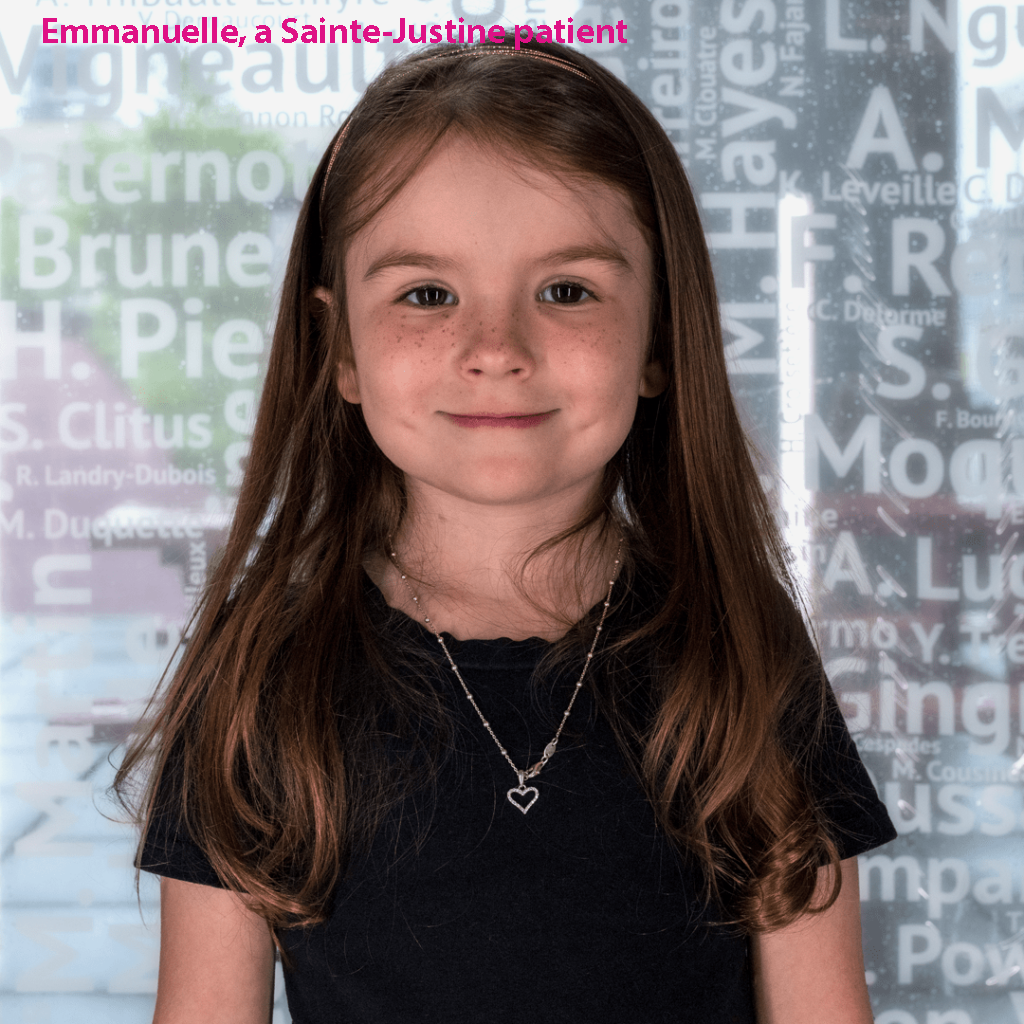Around her first birthday, Emmanuelle caught a mild virus and developed a fever. After seven days and multiple visits to the doctor, her temperature was still high. Concerned, her parents took her to the emergency room at Sainte-Justine.
Though the virus Emmanuelle had was commonplace, her immune system is far from ordinary. Faced with a threat, it had gone into overdrive, and the elevated immune response had caused severe inflammation throughout her body. After 20 days of investigation, she was diagnosed with a rare disease: familial hemophagocytic lymphohistiocytosis (FHLH). In Quebec, only about one child is diagnosed with FHLH each year. If left untreated, it is fatal in 95% of cases.
Shattered by the news, Emmanuelle’s parents entrusted their daughter to the care of Sainte-Justine’s medical teams, who endeavoured to save her. Though time was of the essence, the team didn’t want to miss any details and felt it was important to screen Emmanuelle’s family members for the disease as well. To do so, they called in Sainte-Justine’s genomics experts, whose work is made possible by donations, including transformational gifts from Power Corporation of Canada, Paul Desmarais Jr., and André Desmarais. While it was discovered that Emmanuelle’s parents are both carriers of FHLH, neither they nor her older brother, James, had the disease.
The first treatment Emmanuelle received caused significant side effects. Her medical team needed to regroup and find a different way to get her life-threatening inflammation under control as quickly as possible. Fortunately, Dr. Hélène Decaluwe, a clinician-researcher at CHU Sainte-Justine, had the solution. For 10 years, she had been studying a molecule with great potential to help children like Emmanuelle. Dr. Decaluwe developed a targeted, custom-made treatment protocol to give Emmanuelle the best chance of recovery with limited side effects.
The treatment was incredibly successful: Emmanuelle’s inflammation finally began to subside. Shortly thereafter, she received the bone marrow transplant she needed to cure her illness. Her journey to recovery lasted over five months. She had two long hospital stays, during which time your generosity played an important role. Thanks to you, the Social Services team was able to ease the financial burden associated with illness for Emmanuelle’s family and make sure that her mother, who was at Emmanuelle’s bedside day and night, was able to have some restful nights of sleep.
Three years later, Emmanuelle’s parents have no doubt that research saved their daughter.
“When we tell people how sick she was, and that she nearly died, they don’t believe us because she’s absolutely thriving today.”
As for Dr. Decaluwe, she is continuing her quest to develop increasingly effective treatments for children like Emmanuelle with the generous support of donors and philanthropic partners like Charles-Bruneau Foundation, who make cutting-edge technologies available to her research team.
